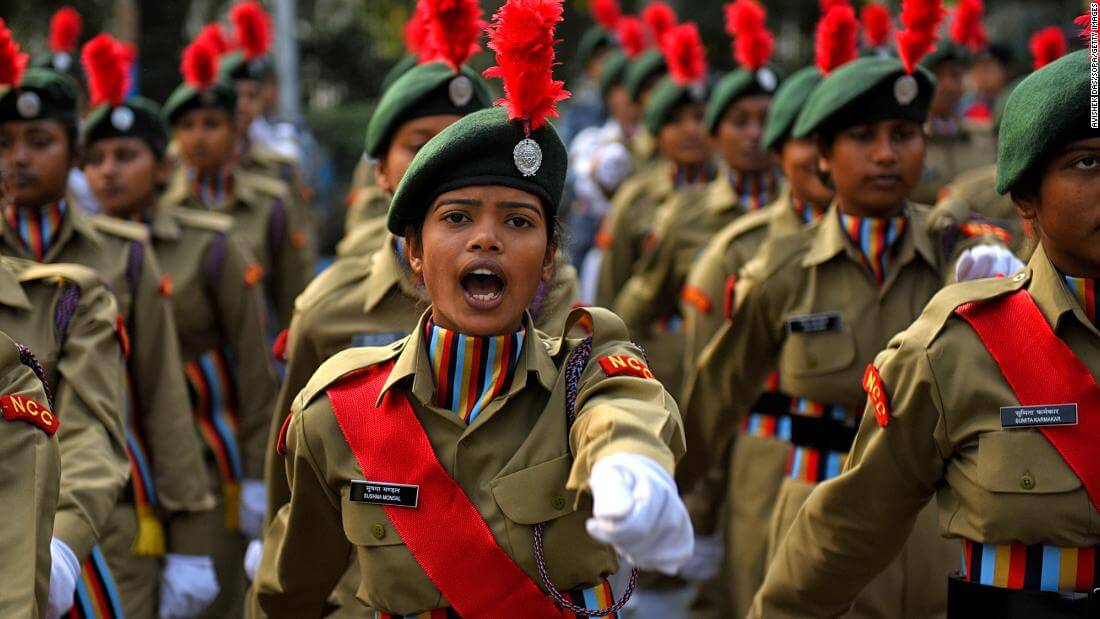By Neha Bhupathiraju
Case: Kush Kalra v. Union of India
Bench: Justice Kishan Kaul and Justice Hrishikesh Roy
The Supreme Court removed the bar for women to appear before the NDA exam scheduled on September 5. The Court passed an interim order in Kush Kalra v. Union of India pending before the Court since earlier this year, and pointed out that the admission into the Army would however be subject to the decision in the petition.
This petition was filed on the grounds of violation of fundamental rights protected by Articles 14, 15 and 16 by denying women an opportunity to be eligible for the National Defence Academy. The only ground for the ineligibility is the sex of the applicant without any reasonable justification.
Justices Kishan Kaul and Hrishikesh Roy slammed the Army for its decision to exclude women from the exam, despite the Court’s ruling in Babita Puniya last year, which allowed women to be eligible for Permanent Commission just like their male counterparts. Justice Kaul pointed out “Why are you continuing in this direction? Even after Justice Chandrachud’s judgment expanding the horizons and extending Permanent Commission in the Army to women? This is unfounded now! We are finding it absurd!….Will the Army only act when a judicial order is passed? Not otherwise? We will do that if that is what you want! This has been my impression right from the High Court that till a judgment is passed, the Army doesn’t believe in doing anything voluntarily!’
When ASG Aishwarya Bhati appearing for the Government submitted that it is a policy decision, the Court said “The policy decision is based on gender discrimination. We direct the Respondents to take a constructive view of the matter in view of judgment of this court (Babita Puniya)”. The Court also expressed discontentment for compelling judicial intervention time and again.
Babita Puniya i.e The Permanent Commission Case
In 2008, the Ministry of Defence authorized Permanent Commissions (PCs) for women but only in selective and prospective cases, which was not the case for their male colleagues. In a verdict dated 2010, the Delhi High Court allowed PCs to women on par with men, which was challenged in the Supreme Court. The submissions made by the Government at the Apex Court were based on deeply sexist notions. It argued “…to take into account the inherent dangers involved in serving in the Army, adverse conditions of service which include an absence of privacy in field and insurgency areas, maternity issues and child care.”
Justice Chandrachud noted that, “Underlying the statement that it is a “greater challenge” for women officers to meet the hazards of service “owing to their prolonged absence during pregnancy, motherhood and domestic obligations towards their children and families” is a strong stereotype which assumes that domestic obligations rest solely on women. Reliance on the “inherent physiological differences between men and women” rests in a deeply entrenched stereotypical and constitutionally flawed notion that women are the “weaker‟ sex and may not undertake tasks that are too arduous‟ for them. Arguments founded on the physical strengths and weaknesses of men and women and on assumptions about women in the social context of marriage and family do not constitute a constitutionally valid basis for denying equal opportunity to women officers. To deny the grant of PCs to women officers on the ground that this would upset the “peculiar dynamics” in a unit casts an undue burden on women officers which has been claimed as a ground for excluding women. The written note also relies on the “minimal facilities for habitat and hygiene” as a ground for suggesting that women officers in the services must not be deployed in conflict zones. The respondents have placed on record that 30% of the total women officers are in fact deputed to conflict areas”.
While the judgement allowed women to be equally eligible for PCs, financial incentives, pension etc, the reality post the verdict is disappointing. Data revealed that only 45% were commissioned out of eligible 75% – whereas 90% male officers were commissioned. Further, women are subjected to blanket policies unlike their male counterparts. Women, including those above 40, must pass the The SHAPE-1 category demand, passing the Battle Physical Efficiency Test (BPET), and undertaking an AE (Adequately Exercised) tenure for a minimum of two years. When Challenged before the Supreme Court, the Army contended that women are seeking special treatment and it will threaten the nation’s security. ‘This raises pertinent questions — are all men who have PCs but are not currently in SHAPE-1 category undermining the nation’s security? It is worth debating how or to what extent women would undermine national security, considering they are still not allowed to take up combat roles.’
All hope however is not lost. There is a massive shift in the way these institutions perceive women. Women’s entry into the armed forces began in 1992, and it has evolved since. The judiciary appears to be a beacon of hope in this case.


